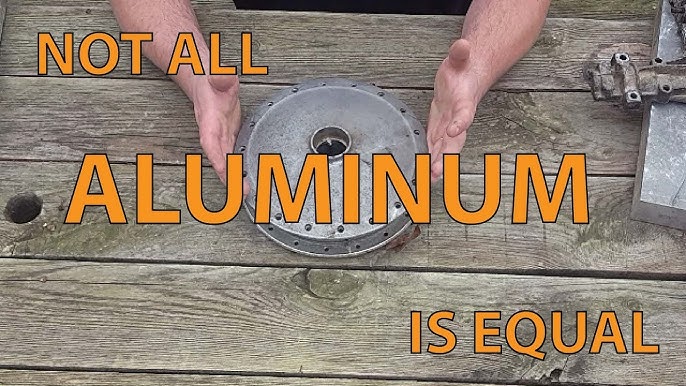The 25-Second Trick For Alcast Company
The 25-Second Trick For Alcast Company
Blog Article
Alcast Company - Questions
Table of ContentsGetting The Alcast Company To WorkThe 9-Second Trick For Alcast CompanyAlcast Company for DummiesThe Alcast Company IdeasExcitement About Alcast CompanyAn Unbiased View of Alcast Company
The subtle distinction depends on the chemical material. Chemical Contrast of Cast Light weight aluminum Alloys Silicon promotes castability by decreasing the alloy's melting temperature level and boosting fluidness during casting. It plays an important duty in allowing elaborate molds to be filled up properly. In addition, silicon adds to the alloy's strength and wear resistance, making it important in applications where longevity is important, such as vehicle components and engine parts.It additionally boosts the machinability of the alloy, making it much easier to refine into finished products. This way, iron adds to the general workability of aluminum alloys. Copper boosts electric conductivity, making it helpful in electrical applications. It also boosts deterioration resistance and contributes to the alloy's overall strength.
Manganese adds to the strength of light weight aluminum alloys and enhances workability (aluminum foundry). It is frequently used in functioned aluminum items like sheets, extrusions, and profiles. The visibility of manganese aids in the alloy's formability and resistance to cracking throughout fabrication procedures. Magnesium is a lightweight component that supplies strength and effect resistance to aluminum alloys.
The Ultimate Guide To Alcast Company
It allows the production of lightweight elements with superb mechanical buildings. Zinc enhances the castability of aluminum alloys and aids regulate the solidification process during casting. It enhances the alloy's toughness and solidity. It is often discovered in applications where complex forms and great details are required, such as ornamental castings and specific vehicle components.

The key thermal conductivity, tensile toughness, return toughness, and prolongation vary. Amongst the above alloys, A356 has the highest possible thermal conductivity, and A380 and ADC12 have the lowest.
All About Alcast Company

In precision spreading, 6063 is fit for applications where detailed geometries and top quality surface area finishes are extremely important. Examples include telecommunication rooms, where the alloy's exceptional formability permits for smooth and cosmetically pleasing layouts while keeping architectural honesty. In the Illumination Solutions sector, precision-cast 6063 elements develop stylish and efficient lighting components that need intricate shapes and great thermal efficiency.
It results in a better surface area finish and better corrosion resistance in A360. The A360 shows premium prolongation, making it perfect for complex and thin-walled elements. In precision spreading applications, A360 is fit for industries such as Customer Electronic Devices, Telecommunication, and Power Devices. Its improved fluidity permits intricate, high-precision components like smartphone coverings and interaction gadget real estates.
The 20-Second Trick For Alcast Company
Its distinct properties make A360 a beneficial selection for precision spreading in these industries, enhancing item durability and top quality. Aluminum alloy 380, or A380, is an extensively utilized spreading alloy with numerous distinctive characteristics. It offers superb castability, making it a suitable option for precision spreading. A380 shows excellent fluidity when molten, making certain complex and in-depth mold and mildews are properly duplicated.
In precision spreading, light weight aluminum 413 radiates in the Customer Electronic Devices and Power Tools sectors. This alloy's superior deterioration resistance makes it an exceptional option for outdoor applications, making certain resilient, durable items in the discussed sectors.
Fascination About Alcast Company
As soon as you have made a decision that the aluminum pass away casting procedure is appropriate for your task, a vital following step is choosing one of the most suitable alloy. The light weight aluminum alloy you pick will substantially affect both the spreading process and the buildings of the end product. As a result of this, you should make your from this source decision carefully and take an informed technique.
Determining the most suitable aluminum alloy for your application will certainly mean weighing a wide array of qualities. These comparative alloy qualities follow the North American Die Spreading Association's guidelines, and we have actually separated them right into 2 classifications. The very first classification addresses alloy attributes that impact the manufacturing process. The second covers characteristics affecting the residential or commercial properties of the final product.
Things about Alcast Company
The alloy you pick for die casting straight impacts several elements of the spreading process, like just how simple the alloy is to function with and if it is prone to casting issues. Hot fracturing, also called solidification breaking, is a regular die casting flaw for light weight aluminum alloys that can result in internal or surface-level splits or cracks.
Particular aluminum alloys are more at risk to hot fracturing than others, and your selection must consider this. An additional common flaw found in the die casting of light weight aluminum is die soldering, which is when the cast stays with the die wall surfaces and makes ejection difficult. It can damage both the actors and the die, so you need to search for alloys with high anti-soldering properties.
Corrosion resistance, which is already a noteworthy quality of light weight aluminum, can differ substantially from alloy to alloy and is an important characteristic to think about depending upon the ecological problems your product will certainly be revealed to (Aluminum Casting). Wear resistance is another residential property frequently looked for in light weight aluminum products and can distinguish some alloys
Report this page